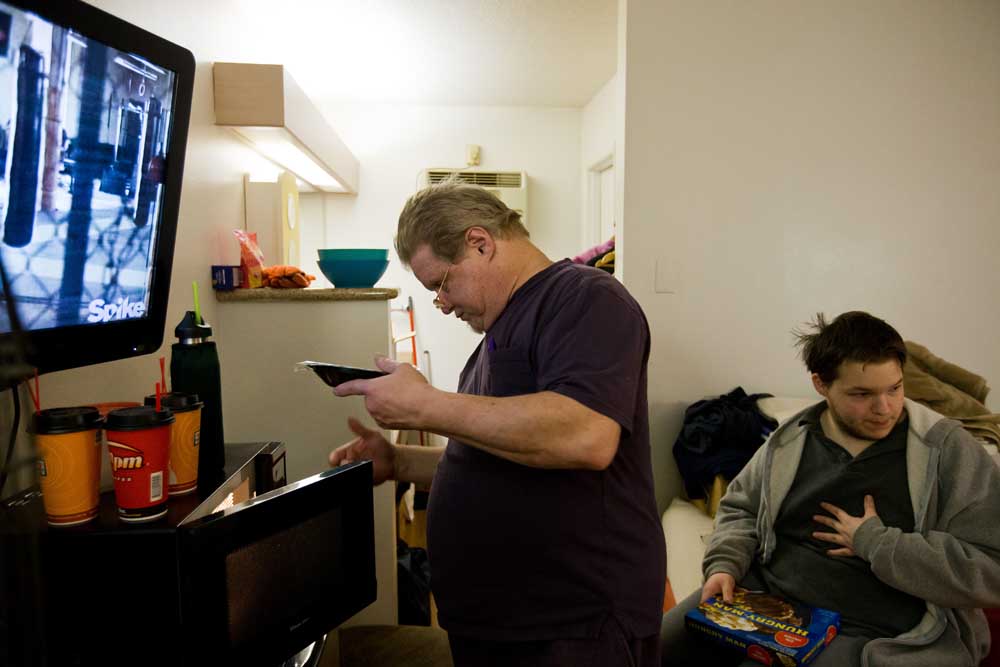Oregon sees a rise in eviction filings, but rent assistance programs are working
Published 12:50 pm Thursday, May 29, 2025

- Joe Kline / The Bulletin Michael Page heats up a frozen dinner for himself and his son, Michael Brandon, right, in their room at Motel 6. Many of the Pages' meals have been microwaveable since they were evicted from their home in La Pine.
Eviction prevention programs less expensive than re-housing efforts, experts say
Oregon saw a record number of eviction filings in 2024, with most cases related to a tenant struggling to afford rent.
There were nearly 27,300 evictions filed in 2024, and middle class families that previously were not considered rent-burdened are increasingly at risk of eviction, Sybil Hebb, the Oregon Law Center director of legislative and policy advocacy, told the House Committee on Housing and Homelessness on Wednesday.
Oregon’s rise in eviction filings is largely driven by high demand for housing and stagnant wages. As the housing crisis continues, housing advocates are urging lawmakers to maintain funding for rent assistance and legal aid programs, which they say are critical to keeping Oregonians housed.
Trending
Gov. Tina Kotek, who declared a homelessness emergency on her first full day in office, has consistently prioritized solving the housing crisis. In her budget proposal in December, Kotek recommended the state allocate $173.2 million to maintain eviction prevention services to prevent Oregonians from becoming homeless in the first place.
Oregon has the sixth most expensive housing cost index in the nation, according to Oregon Housing and Community Services. And one in four Oregon households spend more than 50% of their income on rent, leaving many renters vulnerable — particularly families with children and Black women — to eviction should they face unexpected emergencies, such as illness or a family crisis.
“The presence of a child in a home is the single greatest risk factor for eviction,” Hebb said.
The average monthly eviction filings in 2024 was nearly 2,300. That number has risen to a monthly average of almost 2,400 eviction filings so far in 2025.
“I think that’s a direct relationship to the cost burden that is increasing for folks,” Hebb said.
Rent assistance and legal aid are helping keep Oregonians housed
While eviction filings have increased, not all evictions are carried out. Housing advocates say eviction cases are getting dismissed more often as people have more access to rental and legal assistance.
Trending
In February, Hebb said tenants who could not afford their rent kept their housing in 91% of cases with help from a lawyer, in comparison to 51% of cases where tenants did not have legal representation.
Kemp Shuey, executive director for Community Action in Washington County, urged lawmakers to support House Bill 5011, a budget bill for the Housing and Community Services Department that would allocate millions to housing stabilization programs like the ones he provides.
Eviction prevention efforts from his organization have kept 91% of the 2,500 households he’s served over the last two years housed.
“We know the need for this resource remains high for families in Washington County as the cost of basic needs rise faster than family incomes,” he told the committee.









